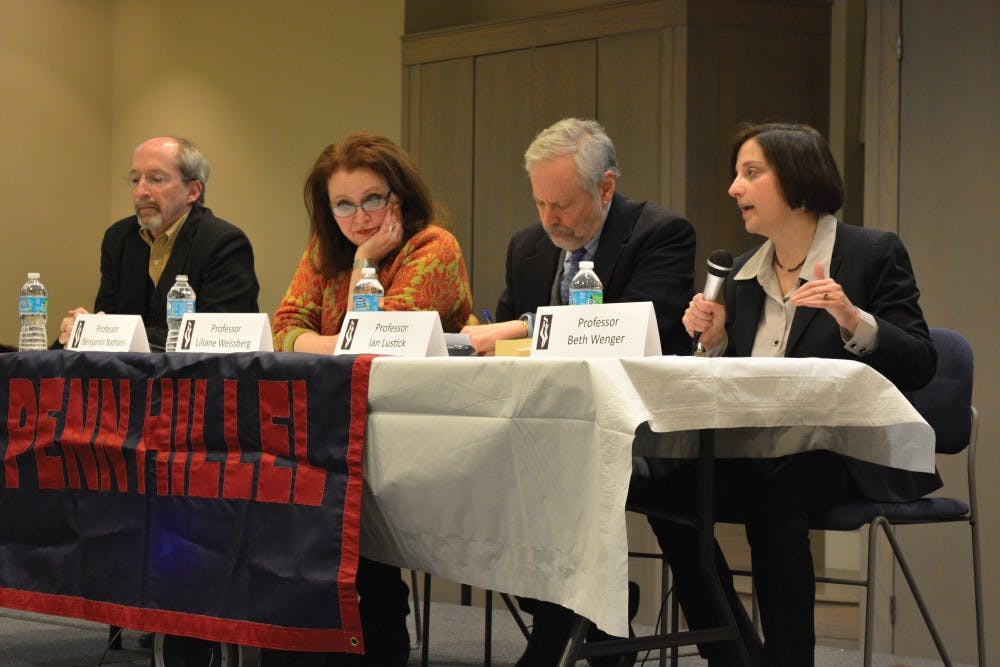Although many Americans have protested President Donald Trump’s immigration ban, some protests come from a place of personal connection. Jewish groups have invoked the memory of the restriction of Jewish immigration to the United States in the 1920s and 1930s, from which millions of Jews died in the Holocaust.
On Monday night, Penn Hillel hosted a panel titled “Comparing the U.S. Policy During World War II and Today: Has Nothing Changed?” The panel was moderated by Hillel staff member Rabbi Yaakov Taubes and featured four Penn professors: History professors Beth Wenger and Benjamin Nathans, German professor Liliane Weissberg of the German Department and Political Science professor Ian Lustick.
“Someone suggested that it might be interesting to have an event at Hillel discussing the parallels between the recent executive order and refugee policy in America during World War II,” former Hillel President and College senior Katie Hartman said. “Especially because that is something a lot of our students were maybe seeing on Facebook, or hearing the parallels, and wanted to know what the parallels actually are.”
The panelists, all of whom publish research related to Jewish history or Israel, spoke about current and historical refugee policies with a Jewish perspective. They noted that Jews throughout their history have been immigrants and refugees.
“The narrative of being strangers in a strange land is woven into the DNA of Jewish consciousness,” Nathans said.
The professors also discussed America’s historical relationship with immigrants.
“Along with a nation that touts itself as a nation of immigrants comes a long history of fear of immigrants and immigrant exclusion,” Wenger said.
Lustick pointed out a similarity between the reasoning behind today’s ban and the ban against Jewish immigration during the 1930s.
“There can be a fear of Jews because ‘the Nazis have sprinkled some spies among them,’” he said. “And therefore we can’t let any of these men, women or children in because Nazi spies might come. And then the fear that among the Muslims could be terrorists, so we can’t take any of them. It’s the same argument, and it’s not an unusual argument.”
Comparing Nazi anti-Semitism and modern xenophobic trends, Nathans emphasized the seriousness of state adoption of discriminatory policies.
“That for me is the tipping point,” he said.
The panelists also discussed the differences between the political climates in Nazi Germany and the United States today. Weissberg spoke about how thousands of Americans have protested the recent ban in ways the citizens of Germany did not protest Nazi policies.
American Jews in the 1930s feared that appearing to be too politically active could increase the prevalence of anti-Semitism, panelists said. When asked if Jews should have the same fears today, Wenger said they should not refrain from political advocacy.
“I don’t think this is a time to step back,” she said. “I think it is a time to step forward.”









